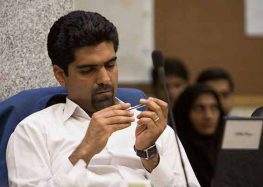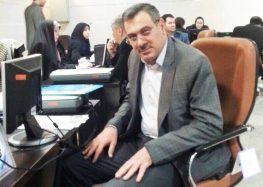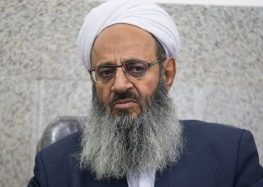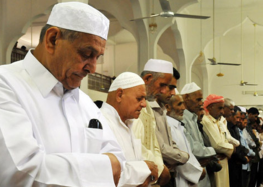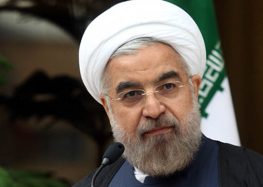Former Sunni MP: Rouhani Government Failing to Uphold Minority Rights Despite Supreme Leader’s Call
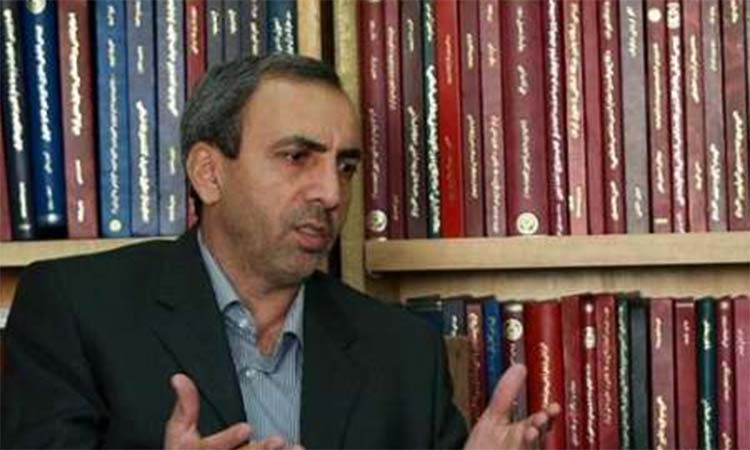
The situation of Iran’s Sunni Muslims has not improved since Supreme Leader Ali Khamenei pointed out in a sermon that minorities are constitutionally protected from discrimination, a former Sunni member of Parliament told the Center for Human Rights in Iran (CHRI).
“The supreme leader’s response gave Mr. [Hassan] Rouhani a very good opportunity to take steps towards eliminating discrimination against Sunnis,” said Jalal Jalalizadeh, a former MP from the city of Sanandaj in Kurdistan Province, on September 25, 2017.
Khamenei said officials have a “duty” to respect minority rights during a sermon on August 22, 2017. The rare outreach was seen as a response to a letter he received on August 2 from a top-ranking Iranian Sunni cleric, Molavi Abdolhamid Ismaeelzahi, calling for an end to “38 years of inequality” for minorities since the 1979 Iranian revolution.
“In accordance with religious teachings and the Constitution, all the institutions of the Islamic Republic have a duty to refrain from any discrimination or inequality towards Iranians from any ethnicity, race or faith,” said Khamenei.
Jalalizadeh, who was a prominent member of the Sunni block in Iran’s parliament from 2000-04, continued: “The supreme leader’s response pointed to certain discriminatory and unjust practices that must be addressed. If officials were followers of the supreme leader, they would have taken some steps in this direction.”
“For instance, the judiciary could have hired five Sunni judges,” he added. “Or the government could have appointed a few Sunnis to head provincial departments in Sunni-majority regions. Or a few Sunnis could have joined the Supreme Cultural Revolution Council or the Expediency Council. Or the judiciary and the president could have announced that all departments have a duty to hire Sunnis.”
“We hear all these officials pledging to obey the leader, but not one of them has done anything since he called for an end to discrimination,” said Jalalizadeh.
In his letter to Khamenei on August 2, 2017, Molavi Abdolhamid called for an end to “38 years of inequality” for minorities since the 1979 Iranian revolution.
Iranian security forces have detained more than a hundred Sunnis since June 7, 2017, accusing them of being linked to the men who carried out two deadly terrorist attacks in Tehran that day. The attacks, which killed 18 people and injured 50, were carried out by supporters of the group that calls itself the Islamic State, also known as ISIS, IS and ISIL.
Despite accounting for an estimated 10 percent of Iran’s population, no Iranian Sunni has ever been appointed to a ministerial position in government since the establishment of the Islamic Republic in 1979.
According to Article 12 of the Constitution, officially recognized Sunni branches of Islam, “including the Hanafi, Shafi’i, Maliki, Hanbali, and Zaydi are to be accorded full respect, and their followers are free to act in accordance with their own jurisprudence in performing their religious rites. These schools enjoy official status in matters pertaining to religious education, affairs of personal status (marriage, divorce, inheritance, and wills) and related litigation in courts of law.”
Jalalizadeh, a central committee member of the reformist Islamic Solidarity Party of Iran, criticized moderate politicians for abandoning minorities after being elected with the support of the Sunni community.
“The Sunnis have taken part in these elections without any expectations, but it is unfortunate that reformists forget them after winning,” he said.
“A quarter of the people who voted for Mr. Rouhani were Sunnis, but no one appreciated the significance,” added Jalalizadeh. “He could have at least appointed a Sunni to head one of the ministries. Or named a few Sunni ambassadors or deputy ministers.”
The Sunni politician warned that if the status quo persists, Iranian Sunnis could begin to support conservatives.
Jalalizadeh was echoing comments by Molavi Abdolhamid in an interview with Shahrvand newspaper on September 13, 2017, in which the cleric said could decide to back conservatives if reformists fail to deliver on their promises to Iran’s Sunnis.
Re-elected on May 19, 2017, Rouhani introduced his ministerial nominees to parliament for approval on August 8. He did not include any Sunnis or women, despite calls from clerics, activists and scholars for him to form a more inclusive cabinet.
More than six million Sunnis supported Rouhani’s re-election in May, according to Molavi Abdolhamid.

